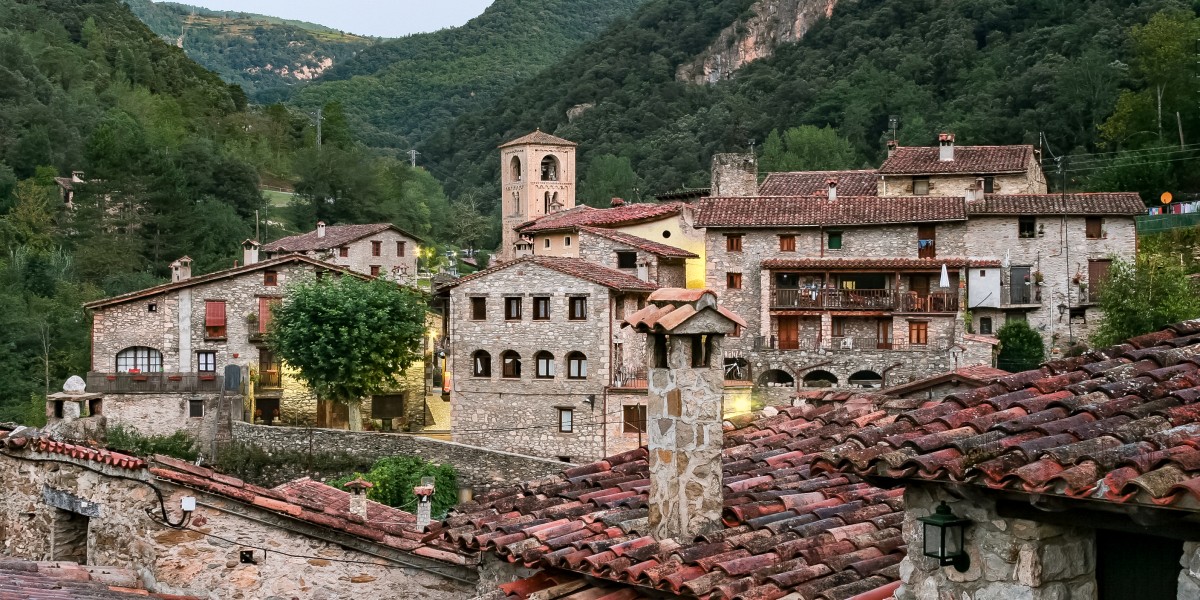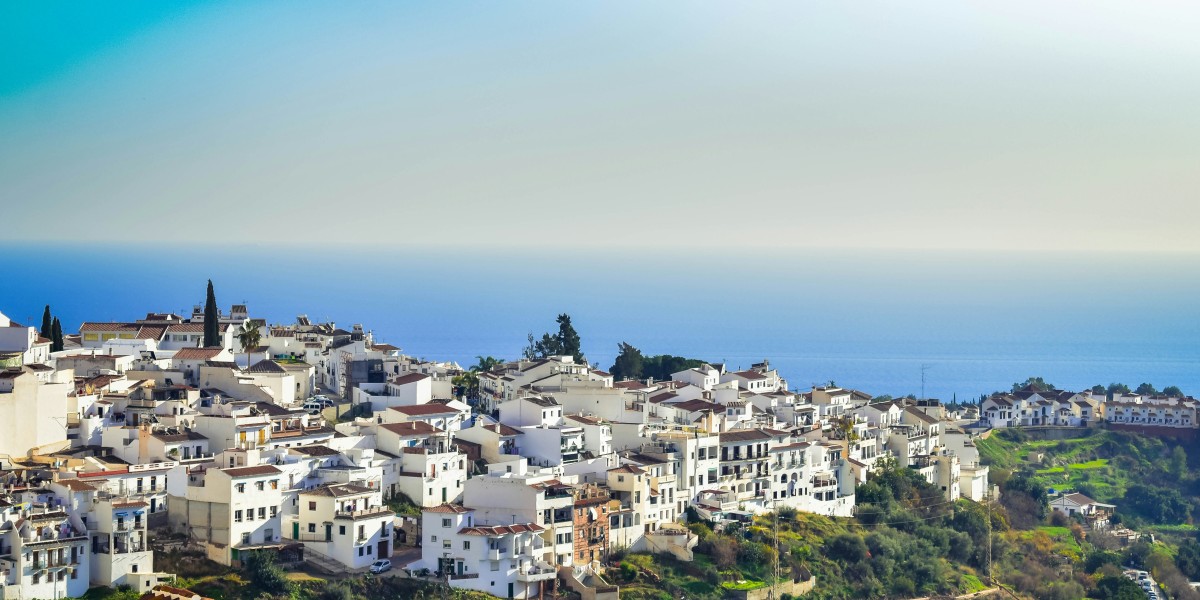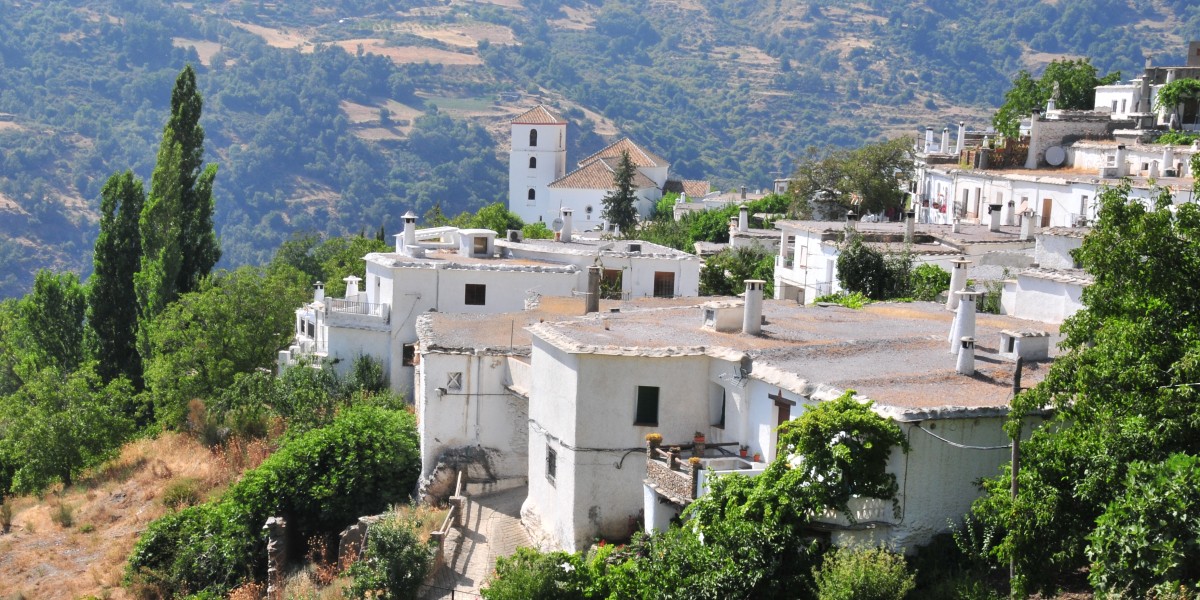
Tucked away in the mountains and along the coasts, you’ll find some of Spain's real treasures – its little villages, which often get overlooked. To help shine a light on these places and protect their character, there’s an official group called La Asociación Los Pueblos más Bonitos de España, the Most Beautiful Villages in Spain Association. It’s a special list that recognises the country’s most remarkable villages. Each village has to meet some pretty strict standards on heritage, architecture, and upkeep to earn its place.
- The new prettiest Spanish villages for 2025
- A tour of Spain's most picturesque towns from the full association list
- Quaintest little towns in Northern Spain
- The most beautiful old towns in Southern Spain
- Picturesque countryside spots in Central Spain
- Prettiest countryside areas in Eastern Spain
- How does a town join the "Most Beautiful Villages in Spain Association"?
- Promoting rural Spain
The new prettiest Spanish villages for 2025
It’s always interesting to see the new additions to the list, and for 2025, seven new spots have been accepted, bringing the total number of official villages to 122. They are dotted all over the country, from the plains of Extremadura to the hills of Aragón, so you get a real sense of Spain’s regional differences. Here’s a proper look at the newcomers:
Jerez de los Caballeros, Extremadura
This village in Extremadura is steeped in the history of the Knights Templar. Jerez de los Caballeros' skyline is defined by its many church towers and the old fortress walls that once protected this grand town in Badajoz.
Llerena, Extremadura
Not far from Jerez, Llerena is sometimes called the "little Athens of Extremadura". It has a grand Plaza Mayor and a great deal of Mudéjar architecture that gives it a really distinct look.
Linares de Mora, Aragón
Tucked away in the Teruel province, this medieval village is a maze of steep, narrow streets. Linares de Mora is known for its Gothic church and rustic stone houses, and feels like a proper step back in time.

La Fresneda, Aragón
Also in Teruel, this village is a highlight of the Matarraña region. La Fresneda has a handsome, arcaded Plaza Mayor and a mix of Gothic and Renaissance buildings, with the ruins of an old castle looking down from above.
Poza de la Sal, Castilla y León
As the name suggests, this town in Burgos has a history deeply connected to its salt works. Poza de la Sal has a well-kept medieval centre, but its real point of interest is the unusual landscape of its salt flats.
Berlanga de Duero, Castilla y León
This Soria village is dominated by its enormous medieval castle and well-preserved walls. Berlanga de Duero is a classic Castilian fortress town with a grand Renaissance church that speaks to its important past.
Letur, Castilla-La Mancha
Found in the mountains of Albacete, Letur has a clear Islamic heritage. Its old town is a labyrinth of narrow, winding streets that open up unexpectedly to give you good views across the landscape, with the sound of waterfalls from nearby streams.
A tour of Spain's most picturesque towns from the full association list
The full list from the association has over 100 places on it, so going through them all would take ages. Instead, here are some of the highlights from different corners of the country to show you just how varied they are. Each one has been chosen for its history, architecture, and the general state of its preservation.
Quaintest little towns in Northern Spain
Up in the north, where everything is a bit greener, the villages feel completely different. You get these lovely fishing villages tucked into cliffs and old mountain towns built from stone.

Cudillero, Asturias
This is probably one of the most photogenic fishing villages in Asturias, if not Spain. It’s built in a sort of natural amphitheatre around the little port, with brightly painted houses stacked up the hillside. You have to navigate a maze of steep, narrow alleys to get around, but the view from the top is worth it.
Potes, Cantabria
Right in the middle of the Picos de Europa mountains, Potes is a medieval town known for its stone bridges crossing the river that runs through its centre. It's surrounded by high peaks, and its old quarter is full of solid, balconied houses and defensive towers.
Mondoñedo, Galicia
This old town in Lugo was once the capital of one of the seven kingdoms of Galicia, and it has a grand feel to it. The centrepiece is its beautiful 13th-century cathedral, and the whole old quarter, declared a historical-artistic complex.

Beget, Catalonia
Located in a remote valley in the Pyrenees, Beget is made up of gorgeous stone houses and is known for its two medieval bridges and the magnificent 12th-century Church of Sant Cristòfol. There are no modern buildings here, so it’s a real step back in time.
Laguardia, Basque Country
Sitting on a hill overlooking a sea of vineyards in the Rioja Alavesa region, Laguardia is a perfectly preserved medieval walled town. The entire subsoil of the town is riddled with hundreds of underground cellars or calados, which were used for making and storing wine.
The most beautiful old towns in Southern Spain
Down in Andalusia, it’s all about the famous pueblos blancos, or white villages. These are left over from the Moorish era, and they are brilliant at staying cool in the intense summer heat.

Frigiliana, Andalucía
Just inland from the coast in Málaga, Frigiliana is a classic example of a white village. The upper part of the town is the old Moorish quarter, a tightly packed network of cobbled streets lined with whitewashed houses, their doorways often painted blue.
Mojácar, Almería
Perched on a hilltop a few kilometres from the sea, Mojácar is a cluster of white, cube-like houses that spill down the side of the hill. It has a long history and a slightly bohemian feel today, with lots of little artisan shops and galleries tucked away in its winding streets.
Baños de la Encina, Andalucía
This village in Jaén is dominated by its enormous 10th-century Moorish castle, one of the oldest and best-preserved in Europe. It’s a huge structure with fourteen towers and a commanding position overlooking a sea of olive groves.

Bubión, Andalucía
This is one of the three famous villages in the Poqueira Ravine, on the slopes of the Sierra Nevada. It boasts Berber architecture, with steep streets and houses built into the terrain with flat limestone roofs. It's often overlooked by people driving through to the next village, but it's part of a designated Site of Cultural Interest and has a history that goes way back to Roman times
Vejer de la Frontera, Andalucía
This is a quintessential hilltop white town in the province of Cádiz. It’s a beautifully preserved maze of winding streets, hidden patios, and ancient defensive walls. On a clear day, from the highest points, you can see all the way across the Strait of Gibraltar to Morocco.
Picturesque countryside spots in Central Spain
The heart of Spain is a land of high plains, deep history, and imposing castles. The villages here often feel like they're straight out of a storybook about medieval knights and kings.

Pedraza, Castilla y León
This is a perfectly preserved walled town that you can only enter through a single gate. It has a beautiful cobbled main square lined with old houses and a castle at one end. In July, they hold candlelit concerts where the entire village is lit only by candlelight.
Chinchón, Community of Madrid
Just a short trip from the capital, it’s famous for its medieval Plaza Mayor, which is one of the most unusual squares you'll see. It’s an irregular, ramshackle circle of three- and four-storey buildings with continuous green wooden balconies. For centuries, it has been used as an open-air theatre and a bullring.

Frías, Castilla y León
Officially the smallest "city" in Spain, it's built on a steep hill, and its famous hanging houses, or casas colgadas. Right at the top, a dramatic castle sits on a rocky outcrop, watching over the whole town.
Guadalupe, Extremadura
This village boasts a spectacular Royal Monastery of Santa María de Guadalupe, which is a UNESCO World Heritage site. It’s a huge, fortress-like building that completely dominates the little village huddled around it. It has an unusual mix of Gothic, Mudéjar, and Baroque styles.
La Alberca, Castilla y León
This was the very first rural village in the country to be declared a National Historic-Artistic Monument. It has stone and timber-framed houses and is known for its local traditions, including one where a pig, the marrano de San Antón, is left to wander the streets freely for months, being fed by the villagers.
Prettiest countryside areas in Eastern Spain
Heading east, you find the powerful medieval kingdoms of Aragón and the influence of the Mediterranean. This region is home to some incredible fortified towns and coastal retreats.

Albarracín, Aragón
Often named one of the most beautiful villages in all of Spain, Albarracín is a medieval fortified town in the hills of Teruel. Its buildings have a distinctive reddish, plaster-like tone, and the whole place is encircled by impressive defensive walls that you can walk along for fantastic views.
Morella, Castellón
Morella is a medieval town completely enclosed by two kilometres of stone walls, with a huge castle sitting right on top of the rocky hill it’s built on.

Peñíscola, Castellón
Peñíscola's old town is built on a rocky headland that juts out into the sea, surrounded by water on three sides. It’s dominated by a castle that was once a home to Pope Benedict XIII – known as Papa Luna. More recently, you might recognise it from Game of Thrones.
Guadalest, Alicante
This little village is built right on top of a massive rock and is completely encircled by mountains. To enter Guadalest, you have to go through a tunnel carved into the stone to even get into the oldest part, where you'll find the San José castle and narrow, cobbled streets.
Fornalutx, Mallorca
High up in the Serra de Tramuntana mountains in Mallorca, it’s a beautifully preserved village of traditional stone houses with red-tiled roofs, set amongst terraces of orange and lemon groves. The whole place smells of citrus, and the steep, cobbled streets are impeccably kept, with potted plants on every doorstep.
How does a town join the "Most Beautiful Villages in Spain Association"?

The process is strict, with only a small number of the places that apply actually making it through the audit. To be considered, a village has to meet several key criteria. First off, size matters. A village must have fewer than 15,000 residents. They also have to prove they have certified architectural or natural heritage that is being properly looked after.
But it’s the day-to-day upkeep that really makes the difference. The association sends people to audit the villages, checking on things like:
- The conservation of building facades.
- Controlled vehicle circulation, especially in the historic centre.
- The care taken with flowers and public green spaces.
- General cleanliness and maintenance throughout the village.
Promoting rural Spain
The idea of the Most Beautiful Villages in Spain Association is to promote and protect the heritage of these special places, many of which are in rural areas that have struggled with depopulation. The hope is that this recognition helps breathe new life into these areas, helping to repopulate rural Spain once again. The association's work fits into a wider movement to support Spain's countryside, which has also led to schemes for villages in Spain where you could get paid to live.

Stay in the know about visiting and living in Spain—get our weekly newsletter for the latest travel, legal, and lifestyle news.
For a taste of the high life, sign up for the monthly luxury market round-up.
